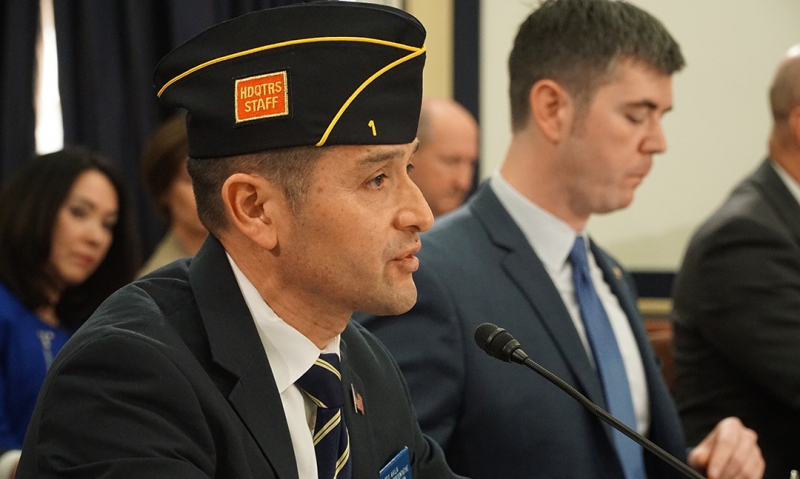
The American Legion passed Resolution 93, urging congress to codify eligibility criteria to be restricted for servicemembers who died in the line of duty and for other distinguished individuals.
American Legion National Veterans Affairs and Rehabilitation Division Deputy Director Gerardo Avila testified before the House Military Personnel Subcommittee on March 8 about the future of Arlington National Cemetery as it relates to preserving the promise for America’s heroes.
“The hallowed grounds of Arlington National Cemetery, which has stood since the Civil War as the crown jewel of reverence for the fallen men and women who have served this nation during peace and wartime, is at a crossroads in its long proud history,” Avila said. “The likelihood that Arlington, with its150-year history, could cease to operate within the next three decades is a real possibility.”
Avila said extending the life of Arlington as an active cemetery will require difficult decisions to be made. In recognizing this reality, The American Legion passed Resolution No. 93, urging congress to codify eligibility criteria to be restricted for servicemembers who died in the line of duty and for other distinguished individuals including:
• Purple Heart recipients;
• Former members of the armed forces who were separated from the military before Oct. 1, 1949, with a physical disability of 30 percent or greater;
• Retirees;
• Eligible spouses and children;
• Former prisoners of war; and for the
• President or former presidents who served as commander in chief.
“We should put a higher priority in ensuring space for those killed in action and those recognized for their courage – Medal of Honor winners and Purple Heart winners,” said Rep. Don Bacon, R-Neb., a retired brigadier general who served nearly 30 years in the U.S. Air Force. “The reality is (that) if we don’t change (the eligibility criteria, then the cemetery) will fill up pretty fast. I think we just have to realize that there is a choice here if we want to preserve (the cemetery) for those who’ve given it their all. But it’s not an easy choice.”
Avila said the Legion believes there should be no waivers for unqualified persons, except under unique and compelling circumstances in order to assure that remaining spaces are used judiciously.
“Unfortunately, the cemetery is rapidly running out of space,” said Rep. Mike Coffman, R-Colo, subcommittee chairman. “If nothing is done in a matter of 23 short years, the cemetery will be closed for new burials.”
While ideas about other expansion options and new burial techniques have been suggested to increase capacity, Avila said each choice comes with its own set of challenges.
“Expanding the current footprint will be difficult due to Arlington’s geographical location,” he said. “Other expansion challenges include money and time.”
According to Avila, the Legion supports exploring alternative ideas in maximizing the current space, and any future space, with new burial techniques that will allow for increased use of aboveground inurnments. The Legion also remains open to changes that do not detract from Arlington and would be beneficial in creating additional capacity.
“The American Legion’s own 100-year history is integrally intertwined with endeavors to preserve the legacy of this nation’s veterans and current servicemembers. Our 2 million members, as well as all living veterans, deserve to have a voice when deciding the future of such a hallowed place,” Avila said. “This is the conversation that I believe we need to have with our membership and everybody at this table.”
In order to make a significant impact, Avila said the Legion believes changing the eligibility criteria will require outreach and educating veterans, servicemembers and their eligible dependents about the tough choices that will affect the future of Arlington National Cemetery.
- Honor & Remembrance

